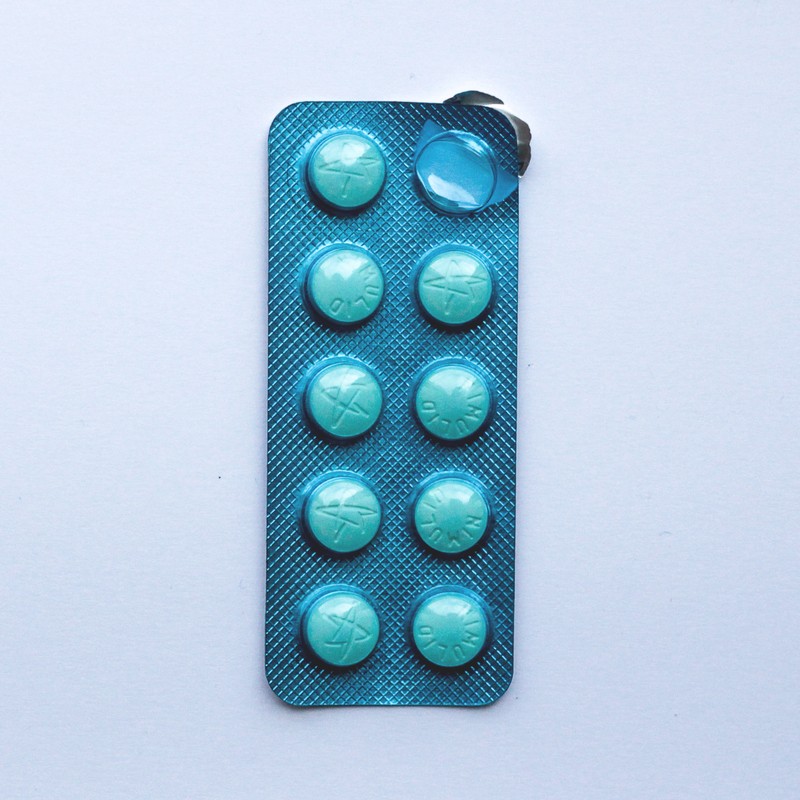Could The Male Pill Mean The Death Of Female Contraception?
What’s the latest?
To the delight of women everywhere, researchers revealed in March that male birth control could soon be on the horizon. The new study, conducted by the University of Washington, suggested the male hormone pill – called dimethandrolone undecanoate, or DMAU – is not only effective, but also safe to take.
According to Dr Stephanie Page, lead author of the study, the male pill effectively reduced hormone levels responsible for sperm production without any serious side effects. In the trial, which involved 83 men, side effects included mild weight gain and acne, but crucially didn’t produce the depressive effects of a 2016 trial for a male contraceptive injection.
Why is this so great?
It couldn’t really have come at a better time. As most preventative measures are aimed at women, they tend to be the ones forced to make large compromises when it comes to contraceptive health, whereas men don’t have to participate as much. So wouldn’t it be nice to share that reproductive responsibility?
Recent research shows women don’t want to take on the burden of protection – and in some cases, they aren’t. In a worrying statistic, the ‘pull out’ method almost doubled in America between 2002 and 2015, and the British Pregnancy Advisory Service revealed almost half of women who had an abortion in 2016 weren’t on any kind of contraception.
Although shocking, in many ways these statistics aren’t surprising, considering the proven side effects that come with taking the female pill. The list is almost endless: bloating, blood clots, weight gain, nausea – and that’s before we even get to the mental health side effects.
Are there any other health risks of the female hormone pill?
There’s an ongoing debate about whether the pill can cause damaging mental health issues. In 2016, Professor Øjvind Lidegaard of the University of Copenhagen released the results of a study showing a correlation between hormonal contraception and depression. He monitored one million Danish women aged 15-34 for 13 years and found that 70% of women on varying types of hormonal contraception – including the pill, the coil and the implant – were more likely to experience depression, with a small but increased risk of suicide, too.
The arrival of the pill in 1961 was a huge victory for women, freeing them from the constraints of the nuclear family and allowing them to take control of their lives in the same way men had been doing for years before. Thing is, as revolutionary as it was back then, it hasn’t really continued to evolve with the times, despite obvious cracks appearing in their appeal to the modern woman. And these cracks turn into deep crevasses when they’re backed by scientific studies such as Lidegaard’s, which shows teens taking the combined pill had an 80% increased likelihood of being prescribed antidepressants.
But as the research is relatively new, convincing a doctor your depression could be a side effect of your pill is no easy feat. Even after Lidegaard’s study dropped in 2016, Holly Grigg-Spall, author of Sweetening The Pill, noted that “no study will ever be good enough for the medical community… As soon as this research dropped, the experts lined up to deliver their usual mix of gaslighting and paternalistic platitudes. We’re told not to be alarmed concerned or deterred from continuing to use our hormonal contraceptives, mostly by men who have and never will take them themselves”.
Despite this, Dr Page says the development of male birth control is something the medical community have been working on since the 1950s. “People have been working on male hormonal contraception for 40 to 50 years,” she told CNN. “There are ways of delivering male contraceptives with long-acting implants and injections, but men are interested in having an oral pill available, and the work we presented here is a step forward.”
At the moment, the only options for a man are the use of condoms or undergoing a vasectomy – the latter being a form of male sterilisation which is hard to reverse. And so it’s often down to the woman to take on the responsibility of finding a suitable form of birth control. And if they don’t? Well, they’re burdened with the responsibility of those implications, too.
When will the male pill be available?
Although we’re closer than ever to the male pill, we’re not quite there yet. There are, of course, going to be some flaws in the latest trial, so it will likely need to be studied further before becoming a reality for the modern man. Assistant Professor of Eurology at New York University, Dr Seth Cohen, said the product needed to be subjected to more tests in order to prove its effectiveness properly. For example, with the study only taking place over 28 days, it cannot yet be said for certain that there will be no liver damage over long-term use. He also added that out of the 83 men, nine came away with a lower libido. “When you put that on a large, multimillion-person basis,” he said, “you have a huge portion of men running around with very low libido.”
But the results are encouraging. Women are so often handed the responsibility – they take the painkillers for period pains, the medication for mood swings, the days off work for hormone migraines, the extra tampons for a heavy flow. If the male pill can remove part of the burden women are left with – the difficult choice between enduring the physical and mental turmoil the pill offers or adopting dodgy contraceptive methods – then that, at the most basic level, is what’s needed as soon as possible.
DISCLAIMER: We endeavour to always credit the correct original source of every image we use. If you think a credit may be incorrect, please contact us at info@sheerluxe.com.


